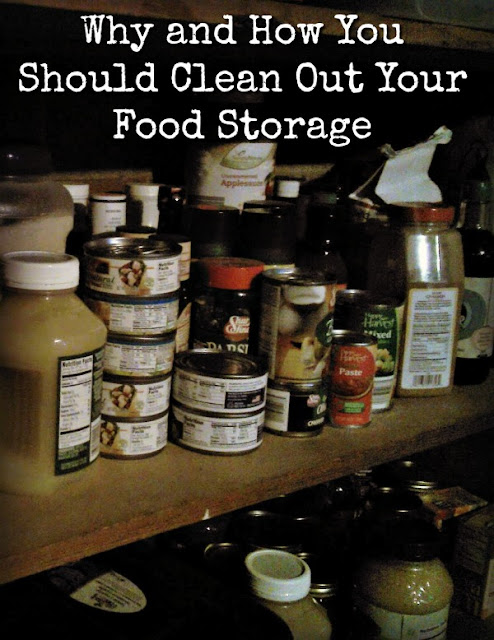Why and How You Should Clean Out (And Organize) Your Food Storage
Food storage is our number two way to be prepared for almost a crisis or situation that can happen in our lives. (Number one is water and water storage.) Our food storage can see us through lean times, no money times, power outages, and other crises. Simply said, we all need to have food storage.
Now let us all be real here. We all have food in our food storage and pantries that are close to the expiration date or past the expiration date. I am fairly organized in my food storage and I know I do.
While food expiration dates do not bother most people, it is important to stay on top of your food storage and keep rotating your food. In times of crisis, you do not want to be questioning your food and if it is edible or even good to eat.
You should be taking the time to grab those foods that are about to expire or have expired, bring them to the kitchen, and use them up in your meals over the next week or month. This may mean some creative meals, but that is better than wasting food!
Some of you may think that you should not be touching your food storage, but you should. You really should. You want to keep your food storage fresh. When you eat something from your food storage, put that item on your grocery list, and purchase another one (or two) for the food storage. By doing this, if you purchased any food for your storage, tried it and found out your family is not crazy about it, you know that you should not be making that food part of your plans.
When you go through your food storage, inventory what you have and when it expired. If you are a canner or perserver, make a list of what you have perserved and put it into your food storage. With purchased food, write on top (or a highly visible surface) the expiration or use by date with a permanent black marker. You want to be able to see it at a glance and know which one needs to be used first if you have multiples of an item. With canned or preserved goods, you want to write on the lid what you have inside the jar and when it was canned (at least the year).
You also need to get some organization going on in your food storage. Having it just thrown on the system or in a bucket with no way of knowing what is where is the best way to have food go to waste. If you have food in buckets, mark the buckets with exactly what you have in them. On your inventory, number the buckets with the contents of the bucket listed. On your shelves, you should have the fruits altogether, the meats altogether, the vegetables altogether, and so on. That way, you know where to find everything and everything has a location to be put away too. The oldest food should be in the front and newest in the back.
Now, do not beat yourself up if you find neglected food. I still have this problem no matter how organized I am. I find the best way to be on top of the food is to keep the shelves neat and not so cluttered you can’t see what is on the shelf. When the shelves get cluttered, I will be missing food that should be used up.
A note of safety: You are your own best decision maker. The decision to use out-dated, expired food is up to you. If the packaging looks compromised in any way, I would not use it. If you open the packaging and the food does not smell, look, or feel right, don’t use it. If the can or lid is bulging in any way, throw the item away immediately.
Thanks for reading,
Erica
